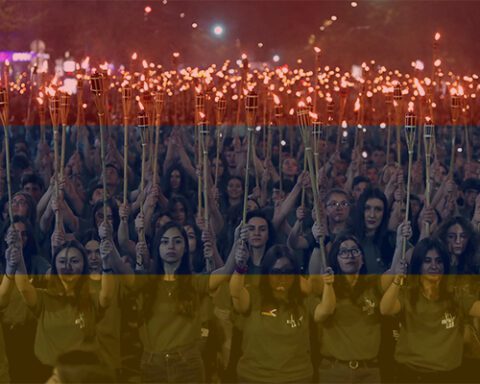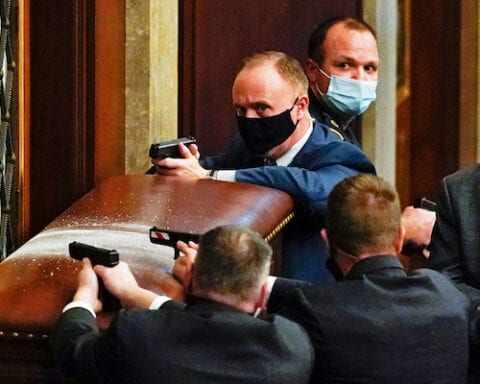Latest DCCC Hack puts Staffers, Members of Congress at Risk
On August 12, 2016, the Democratic Congressional Campaign Committee (DCCC) became the latest victim of a cyberattack and related document leak, this time putting staffers and Members of Congress at personal risk.
The attacker, going by the name of ‘Guccifer 2.0’, released a spreadsheet containing private phone numbers, email addresses, and other sensitive information for most Democratic Members of the House of Representatives. The release included information for their re-election campaigns, congressional and key campaign staffers, and individual characteristics such as marriage status and religion.
The original hacker ‘Guccifer’, also known as Marcel Lazar Lehel, is currently being detained in Alexandria, VA and is awaiting sentencing September 1, 2016, for unauthorized access to a protected computer and aggravated identity theft, as part of a plea agreement with U.S. federal prosecutors. The identity of ‘Guccifer 2.0’ remains unknown, however speculation is that it is likely a creation of Russian state sponsored hacking groups.
#Guccifer2 Here I am! They’ll have to try much harder to block me! #DNCleak #dccchack
— GUCCIFER 2.0 (@GUCCIFER_2) August 14, 2016
House Minority Leader Nancy Pelosi reported to colleagues having “received scores of mostly obscene and sick calls, voicemails and text messages” since the information was made public, in a letter obtained by Politico. The letter also provided guidance on initial steps being taken and suggestions for individuals affected by the leak to protect themselves.
This latest release comes after several months of disclosures on the Guccifer 2.0 website, which have resulted in the resignation of Democratic National Committee (DNC) chairwoman Debbie Wasserman Schultz. Even according to the cybersecurity firm CrowdStrike—which was hired by the DNC to investigate recent cyberattacks—the Guccifer 2.0 intrusions appear to be the work of the involvement of the Russian government.
The DCCC leak also contained information on subscription services used by the committee, passwords for numerous websites and portals, and information on a congressional race in Florida. Short-term ramifications of the leak include the personal threats against elected officials and their staffs, and the time and resources associated with further investigations of the sources of the attack and identity of individuals associated with the Guccifer 2.0 name.
While the long-term implications of the released information are not yet clear, the cyberattack represents a continuation of what is believed to be Russian-sponsored interference with numerous Democratic organizations—including the Clinton campaign, DNC, and DCCC.
With the relative ease of intrusion for a dedicated and likely state-sponsored cyberattack, substantial questions exist as to how frequent and severe future attacks will become.
“State-of-the-art in cybersecurity isn’t just about building moats anymore,” according to Stephen Ryan. Ryan is a member of the Truman National Security Project and a former DoD intelligence analyst. “We have to expand our thinking beyond ‘defense’ to more comprehensive ‘resilience’ – assuming that outside entities can access these networks, how do you minimize the damage once they’re in, and how do you return the network to normal operations after the fact? That’s the real challenge.”
“The norms of state behavior in cyberspace are still emerging,” says Ryan. “The challenging question for the Obama administration – and future administrations – is how to respond to such attacks, because there is yet no generally accepted state practice for ‘response to a state-sanctioned cyber intrusion.’ What that means is whatever tools the U.S. chooses to employ will contribute to establishing behavioral norms in the international community, which is significant.”
Michael D. Connolly, Senior Political Correspondent, Lima Charlie News
Michael Connolly is a former Army Staff Sergeant who served in the Infantry, completing two combat tours to Iraq. He currently serves as the Director of Military and Veterans Affairs for the Smith School of Business at the University of Maryland-College Park. Michael is a member of the Truman National Security Project Defense Council. He graduated with an M.S. in Political Science from the University of Nebraska at Omaha.
Follow Michael on Twitter: @MConnollyLC
Lima Charlie provides global news, insight & analysis by military veterans and service members Worldwide.
For up-to-date news, please follow us on twitter at @LimaCharlieNews







![Image Memorial Day may soon be a remembrance of democracy and those who had the courage to defend it [Lima Charlie News]](https://limacharlienews.com/wp-content/uploads/2018/05/Memorial-Day-may-soon-be-a-remembrance-of-democracy-and-those-who-had-the-courage-to-defend-it-Lima-Charlie-News-480x384.png)
![The Mind of Bolton - AUMF and the New Iran War [Lima Charlie News]](https://limacharlienews.com/wp-content/uploads/2019/05/Inside-the-mind-of-Bolton-Lima-Charlie-News-main-01-480x384.png)

